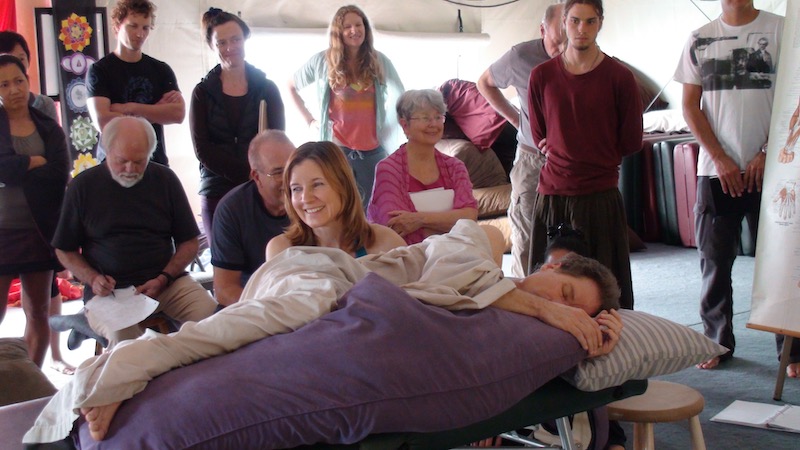
With ever-evolving, strict safety protocols, some learning programs that are simply better and more authentic in person are making a comeback to campus. Bodywork workshops are on the calendar to kick off 2022, beginning with faculty members Perry and Johanna Holloman.
Esalen Massage for Couples is a signature offering in our community, and its absence has been felt deeply for the Hollomans. The difficulty in being so far apart and touch-limited for two years restricted their ability to share their love of human touch for healing.
“We missed being together in person in the group-room,” said Johanna. “Perry and I teach all over the world, and travel has been risky. Countries had strict quarantining protocols which were too difficult to work with.”
“Many of our students suffer from isolation,” said Perry. “I think we were all reminded of the importance of human touch to our overall well-being.”
In many ways, touch is a forgotten language. Can body work can help us be more resilient despite our current social and health challenges? We asked the Hollomans for more insight.
Christine Chen: You call “touch” the forgotten language. What does this mean about how we regain this form of communication today?
Perry Holloman: Touch is the oldest stimulus that living organisms respond to. All of the five senses are based on touch. Sight, sound, taste, smell, or any sensation is based on sensory receptors touched by light, sound waves, etc. We regain this form of communication by slowing down, stopping talking, and becoming truly present at the point of contact.
Christine Chen: What does touch help us do for each other?
Johanna Holloman: Presence-based touch, which is one description of Esalen Massage, heals. What does “healing” mean? It means the awakening of natural self-organizing processes embedded in our DNA which respond to the experience of being touched by someone who is truly present.
CC: How can we approach touch in a safe, accepted, and trauma-informed way?
PH: Being truly present when we touch means being fully aware of the impact of our touch on another living being. When we slow down, sense and feel… prerequisites for presence-based touching… we will notice if our partners are becoming overwhelmed and shutting down. The first thing we teach people in our workshops is to slow down!
CC: What are the keys to the Esalen massage method?
JH: salen Massage is a somatically based practice of awareness. Slowing down heightens awareness of our five senses, and allows us to become present. Coming from “being with” someone, rather than “doing something” to them is the underlying attitude from which we approach touching each other. Long, flowing strokes follow easily in a presence-based manner because the basic techniques are simple and intuitive.
CC: Why do many call this method transformative versus other methods of massage?
PH: Esalen Massage is a healing art. Many other forms of massage and bodywork are taught, and practiced, mechanically. Learning to be truly present — in other words to embody beingness while touching — transforms a technique into a healing art.
CC: What is the difference between massage in general, and massage in-relationship?
JH: The familiarity. Working on Perry, or a dear friend, is a very different experience than working on a client who I am meeting maybe for the first time, because we are already so deeply familiar and connected. In couple’s groups, we can discover how to experience each other in a fresh and immediate way by being truly present and attuned while expressing our love and appreciation from our hearts through our hands.
CC: How can massage, with rituals in the Esalen baths, change the way you feel in your body at the workshop (and maybe after you leave)?
PH: Giving and receiving this kind of attuned loving touch gets us in contact with our wholeness and a profound sense of wellbeing. When we feel good in our bodies and about ourselves we are naturally more kind and accepting: something deeply needed in our relationships both to ourselves and each other.
WATCH:
The Forgotten Language of Touch with Johanna and Perry Holloman
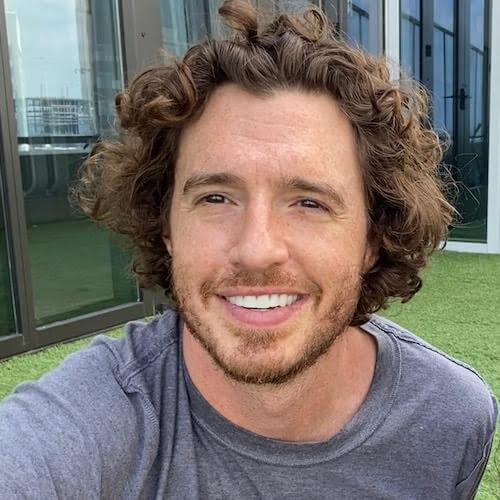
“Remembering to be as self compassionate as I can and praying to the divine that we're all a part of.”
–Aaron
“Prayer, reading, meditation, walking.”
–Karen
“Erratically — which is an ongoing stream of practice to find peace.”
–Charles
“Try on a daily basis to be kind to myself and to realize that making mistakes is a part of the human condition. Learning from our mistakes is a journey. But it starts with compassion and caring. First for oneself.”
–Steve
“Physically: aerobic exercise, volleyball, ice hockey, cycling, sailing. Emotionally: unfortunately I have to work to ‘not care’ about people or situations which may end painfully. Along the lines of ‘attachment is the source of suffering’, so best to avoid it or limit its scope. Sad though because it could also be the source of great joy. Is it worth the risk?“
–Rainer
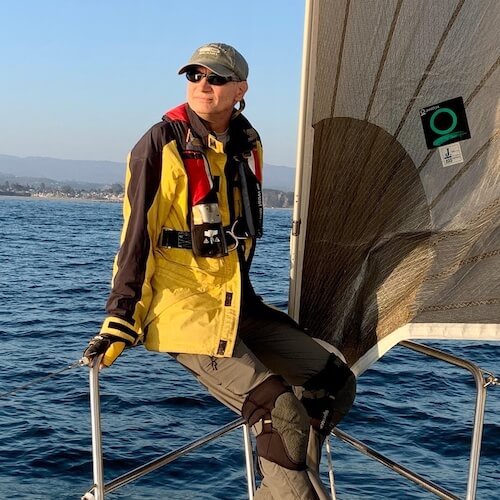

“It's time for my heart to be nurtured on one level yet contained on another. To go easy on me and to allow my feelings to be validated, not judged harshly. On the other hand, to let the heart rule with equanimity and not lead the mind and body around like a master.”
–Suzanne
“I spend time thinking of everything I am grateful for, and I try to develop my ability to express compassion for myself and others without reservation. I take time to do the things I need to do to keep myself healthy and happy. This includes taking experiential workshops, fostering relationships, and participating within groups which have a similar interest to become a more compassionate and fulfilled being.“
–Peter
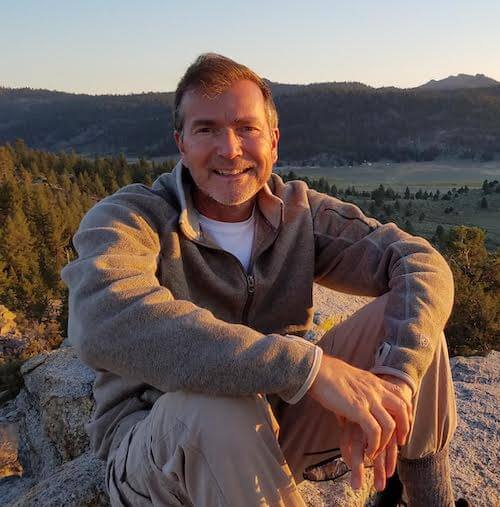
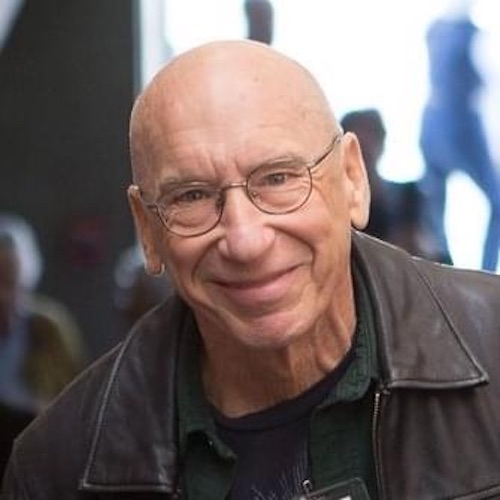
“Self-forgiveness for my own judgments. And oh yeah, coming to Esalen.”
–David B.
“Hmm, this is a tough one! I guess I take care of my heart through fostering relationships with people I feel connected to. Spending quality time with them (whether we're on the phone, through messages/letters, on Zoom, or in-person). Being there for them, listening to them, sharing what's going on with me, my struggles and my successes... like we do in the Esalen weekly Friends of Esalen Zoom sessions!”
–Lori

“I remind myself in many ways of the fact that " Love is all there is!" LOVE is the prize and this one precious life is the stage we get to learn our lessons. I get out into nature, hike, camp, river kayak, fly fish, garden, I create, I dance (not enough!), and I remain grateful for each day, each breath, each moment. Being in the moment, awake, and remembering the gift of life and my feeling of gratitude for all of creation.”
–Steven
“My physical heart by limiting stress and eating a heart-healthy diet. My emotional heart by staying in love with the world and by knowing that all disappointment and loss will pass.“
–David Z.
Today, September 29, is World Heart Day. Strike up a conversation with your own heart and as you feel comfortable, encourage others to do the same. As part of our own transformations and self-care, we sometimes ask for others to illuminate and enliven our hearts or speak our love language.
What if we could do this for ourselves too, even if just for today… or to start a heart practice, forever?
Sign up for the next in Esalen’s Signature Series Massage workshops:
Esalen Massage for Couples and Friends
with Oliver Bailey & Daniella Urbassek
February 18–20, 2022
Christine Chen is a two-time Emmy winning journalist, best-selling author, California native, and senior teacher of yoga and Ayurveda.

With ever-evolving, strict safety protocols, some learning programs that are simply better and more authentic in person are making a comeback to campus. Bodywork workshops are on the calendar to kick off 2022, beginning with faculty members Perry and Johanna Holloman.
Esalen Massage for Couples is a signature offering in our community, and its absence has been felt deeply for the Hollomans. The difficulty in being so far apart and touch-limited for two years restricted their ability to share their love of human touch for healing.
“We missed being together in person in the group-room,” said Johanna. “Perry and I teach all over the world, and travel has been risky. Countries had strict quarantining protocols which were too difficult to work with.”
“Many of our students suffer from isolation,” said Perry. “I think we were all reminded of the importance of human touch to our overall well-being.”
In many ways, touch is a forgotten language. Can body work can help us be more resilient despite our current social and health challenges? We asked the Hollomans for more insight.
Christine Chen: You call “touch” the forgotten language. What does this mean about how we regain this form of communication today?
Perry Holloman: Touch is the oldest stimulus that living organisms respond to. All of the five senses are based on touch. Sight, sound, taste, smell, or any sensation is based on sensory receptors touched by light, sound waves, etc. We regain this form of communication by slowing down, stopping talking, and becoming truly present at the point of contact.
Christine Chen: What does touch help us do for each other?
Johanna Holloman: Presence-based touch, which is one description of Esalen Massage, heals. What does “healing” mean? It means the awakening of natural self-organizing processes embedded in our DNA which respond to the experience of being touched by someone who is truly present.
CC: How can we approach touch in a safe, accepted, and trauma-informed way?
PH: Being truly present when we touch means being fully aware of the impact of our touch on another living being. When we slow down, sense and feel… prerequisites for presence-based touching… we will notice if our partners are becoming overwhelmed and shutting down. The first thing we teach people in our workshops is to slow down!
CC: What are the keys to the Esalen massage method?
JH: salen Massage is a somatically based practice of awareness. Slowing down heightens awareness of our five senses, and allows us to become present. Coming from “being with” someone, rather than “doing something” to them is the underlying attitude from which we approach touching each other. Long, flowing strokes follow easily in a presence-based manner because the basic techniques are simple and intuitive.
CC: Why do many call this method transformative versus other methods of massage?
PH: Esalen Massage is a healing art. Many other forms of massage and bodywork are taught, and practiced, mechanically. Learning to be truly present — in other words to embody beingness while touching — transforms a technique into a healing art.
CC: What is the difference between massage in general, and massage in-relationship?
JH: The familiarity. Working on Perry, or a dear friend, is a very different experience than working on a client who I am meeting maybe for the first time, because we are already so deeply familiar and connected. In couple’s groups, we can discover how to experience each other in a fresh and immediate way by being truly present and attuned while expressing our love and appreciation from our hearts through our hands.
CC: How can massage, with rituals in the Esalen baths, change the way you feel in your body at the workshop (and maybe after you leave)?
PH: Giving and receiving this kind of attuned loving touch gets us in contact with our wholeness and a profound sense of wellbeing. When we feel good in our bodies and about ourselves we are naturally more kind and accepting: something deeply needed in our relationships both to ourselves and each other.
WATCH:
The Forgotten Language of Touch with Johanna and Perry Holloman

“Remembering to be as self compassionate as I can and praying to the divine that we're all a part of.”
–Aaron
“Prayer, reading, meditation, walking.”
–Karen
“Erratically — which is an ongoing stream of practice to find peace.”
–Charles
“Try on a daily basis to be kind to myself and to realize that making mistakes is a part of the human condition. Learning from our mistakes is a journey. But it starts with compassion and caring. First for oneself.”
–Steve
“Physically: aerobic exercise, volleyball, ice hockey, cycling, sailing. Emotionally: unfortunately I have to work to ‘not care’ about people or situations which may end painfully. Along the lines of ‘attachment is the source of suffering’, so best to avoid it or limit its scope. Sad though because it could also be the source of great joy. Is it worth the risk?“
–Rainer


“It's time for my heart to be nurtured on one level yet contained on another. To go easy on me and to allow my feelings to be validated, not judged harshly. On the other hand, to let the heart rule with equanimity and not lead the mind and body around like a master.”
–Suzanne
“I spend time thinking of everything I am grateful for, and I try to develop my ability to express compassion for myself and others without reservation. I take time to do the things I need to do to keep myself healthy and happy. This includes taking experiential workshops, fostering relationships, and participating within groups which have a similar interest to become a more compassionate and fulfilled being.“
–Peter


“Self-forgiveness for my own judgments. And oh yeah, coming to Esalen.”
–David B.
“Hmm, this is a tough one! I guess I take care of my heart through fostering relationships with people I feel connected to. Spending quality time with them (whether we're on the phone, through messages/letters, on Zoom, or in-person). Being there for them, listening to them, sharing what's going on with me, my struggles and my successes... like we do in the Esalen weekly Friends of Esalen Zoom sessions!”
–Lori

“I remind myself in many ways of the fact that " Love is all there is!" LOVE is the prize and this one precious life is the stage we get to learn our lessons. I get out into nature, hike, camp, river kayak, fly fish, garden, I create, I dance (not enough!), and I remain grateful for each day, each breath, each moment. Being in the moment, awake, and remembering the gift of life and my feeling of gratitude for all of creation.”
–Steven
“My physical heart by limiting stress and eating a heart-healthy diet. My emotional heart by staying in love with the world and by knowing that all disappointment and loss will pass.“
–David Z.
Today, September 29, is World Heart Day. Strike up a conversation with your own heart and as you feel comfortable, encourage others to do the same. As part of our own transformations and self-care, we sometimes ask for others to illuminate and enliven our hearts or speak our love language.
What if we could do this for ourselves too, even if just for today… or to start a heart practice, forever?
Sign up for the next in Esalen’s Signature Series Massage workshops:
Esalen Massage for Couples and Friends
with Oliver Bailey & Daniella Urbassek
February 18–20, 2022

With ever-evolving, strict safety protocols, some learning programs that are simply better and more authentic in person are making a comeback to campus. Bodywork workshops are on the calendar to kick off 2022, beginning with faculty members Perry and Johanna Holloman.
Esalen Massage for Couples is a signature offering in our community, and its absence has been felt deeply for the Hollomans. The difficulty in being so far apart and touch-limited for two years restricted their ability to share their love of human touch for healing.
“We missed being together in person in the group-room,” said Johanna. “Perry and I teach all over the world, and travel has been risky. Countries had strict quarantining protocols which were too difficult to work with.”
“Many of our students suffer from isolation,” said Perry. “I think we were all reminded of the importance of human touch to our overall well-being.”
In many ways, touch is a forgotten language. Can body work can help us be more resilient despite our current social and health challenges? We asked the Hollomans for more insight.
Christine Chen: You call “touch” the forgotten language. What does this mean about how we regain this form of communication today?
Perry Holloman: Touch is the oldest stimulus that living organisms respond to. All of the five senses are based on touch. Sight, sound, taste, smell, or any sensation is based on sensory receptors touched by light, sound waves, etc. We regain this form of communication by slowing down, stopping talking, and becoming truly present at the point of contact.
Christine Chen: What does touch help us do for each other?
Johanna Holloman: Presence-based touch, which is one description of Esalen Massage, heals. What does “healing” mean? It means the awakening of natural self-organizing processes embedded in our DNA which respond to the experience of being touched by someone who is truly present.
CC: How can we approach touch in a safe, accepted, and trauma-informed way?
PH: Being truly present when we touch means being fully aware of the impact of our touch on another living being. When we slow down, sense and feel… prerequisites for presence-based touching… we will notice if our partners are becoming overwhelmed and shutting down. The first thing we teach people in our workshops is to slow down!
CC: What are the keys to the Esalen massage method?
JH: salen Massage is a somatically based practice of awareness. Slowing down heightens awareness of our five senses, and allows us to become present. Coming from “being with” someone, rather than “doing something” to them is the underlying attitude from which we approach touching each other. Long, flowing strokes follow easily in a presence-based manner because the basic techniques are simple and intuitive.
CC: Why do many call this method transformative versus other methods of massage?
PH: Esalen Massage is a healing art. Many other forms of massage and bodywork are taught, and practiced, mechanically. Learning to be truly present — in other words to embody beingness while touching — transforms a technique into a healing art.
CC: What is the difference between massage in general, and massage in-relationship?
JH: The familiarity. Working on Perry, or a dear friend, is a very different experience than working on a client who I am meeting maybe for the first time, because we are already so deeply familiar and connected. In couple’s groups, we can discover how to experience each other in a fresh and immediate way by being truly present and attuned while expressing our love and appreciation from our hearts through our hands.
CC: How can massage, with rituals in the Esalen baths, change the way you feel in your body at the workshop (and maybe after you leave)?
PH: Giving and receiving this kind of attuned loving touch gets us in contact with our wholeness and a profound sense of wellbeing. When we feel good in our bodies and about ourselves we are naturally more kind and accepting: something deeply needed in our relationships both to ourselves and each other.
WATCH:
The Forgotten Language of Touch with Johanna and Perry Holloman

“Remembering to be as self compassionate as I can and praying to the divine that we're all a part of.”
–Aaron
“Prayer, reading, meditation, walking.”
–Karen
“Erratically — which is an ongoing stream of practice to find peace.”
–Charles
“Try on a daily basis to be kind to myself and to realize that making mistakes is a part of the human condition. Learning from our mistakes is a journey. But it starts with compassion and caring. First for oneself.”
–Steve
“Physically: aerobic exercise, volleyball, ice hockey, cycling, sailing. Emotionally: unfortunately I have to work to ‘not care’ about people or situations which may end painfully. Along the lines of ‘attachment is the source of suffering’, so best to avoid it or limit its scope. Sad though because it could also be the source of great joy. Is it worth the risk?“
–Rainer


“It's time for my heart to be nurtured on one level yet contained on another. To go easy on me and to allow my feelings to be validated, not judged harshly. On the other hand, to let the heart rule with equanimity and not lead the mind and body around like a master.”
–Suzanne
“I spend time thinking of everything I am grateful for, and I try to develop my ability to express compassion for myself and others without reservation. I take time to do the things I need to do to keep myself healthy and happy. This includes taking experiential workshops, fostering relationships, and participating within groups which have a similar interest to become a more compassionate and fulfilled being.“
–Peter


“Self-forgiveness for my own judgments. And oh yeah, coming to Esalen.”
–David B.
“Hmm, this is a tough one! I guess I take care of my heart through fostering relationships with people I feel connected to. Spending quality time with them (whether we're on the phone, through messages/letters, on Zoom, or in-person). Being there for them, listening to them, sharing what's going on with me, my struggles and my successes... like we do in the Esalen weekly Friends of Esalen Zoom sessions!”
–Lori

“I remind myself in many ways of the fact that " Love is all there is!" LOVE is the prize and this one precious life is the stage we get to learn our lessons. I get out into nature, hike, camp, river kayak, fly fish, garden, I create, I dance (not enough!), and I remain grateful for each day, each breath, each moment. Being in the moment, awake, and remembering the gift of life and my feeling of gratitude for all of creation.”
–Steven
“My physical heart by limiting stress and eating a heart-healthy diet. My emotional heart by staying in love with the world and by knowing that all disappointment and loss will pass.“
–David Z.
Today, September 29, is World Heart Day. Strike up a conversation with your own heart and as you feel comfortable, encourage others to do the same. As part of our own transformations and self-care, we sometimes ask for others to illuminate and enliven our hearts or speak our love language.
What if we could do this for ourselves too, even if just for today… or to start a heart practice, forever?
Sign up for the next in Esalen’s Signature Series Massage workshops:
Esalen Massage for Couples and Friends
with Oliver Bailey & Daniella Urbassek
February 18–20, 2022
Christine Chen is a two-time Emmy winning journalist, best-selling author, California native, and senior teacher of yoga and Ayurveda.